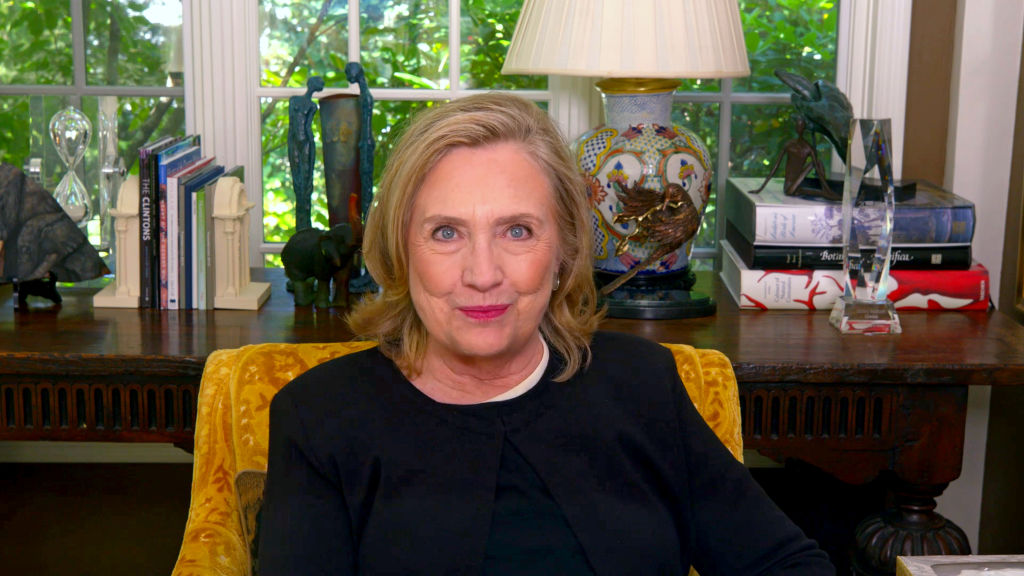The book “State of Terror,” co-authored by Hillary Clinton and novelist Louise Perry, takes aim at just about everyone.
The novel is summarized by The Washington Post as the “first time a major presidential candidate has conducted a political assassination via a thriller.”
The book portrays an American political establishment overseen by largely incompetent men, a “vast right-wing conspiracy” trying to overthrow democracy at home and international terrorists out to devastate the world, according to a review by Andrew Stiles published by the Washington Free Beacon.
Stiles denigrates the book as “Trump derangement porn.”
A nice reminder of what it is that makes @HillaryClinton so repugnant. As always with her, whatever she accuses anyone of doing, that’s precisely what she is doing. https://t.co/Jl4BJAlFWW
— George Szamuely (@GeorgeSzamuely) October 21, 2021
The book centers around the incomparable heroics of Ellen Adams, a media tycoon who becomes secretary of state under President Douglas Williams, a political rival.
Stiles sums up the domestic villain of the piece as “Eric Dunn, aka ‘Eric the Dumb,’ the racist tyrant currently sulking at his Palm Beach estate after failing to collude successfully to steal another election. His breath ‘smelled of meat.’”
Adams finds a “vast right-wing conspiracy” of disaffected violent pseudo-patriots who “hate America’s diversity.” In the book, this group forces “Eric the Dumb” into scuttling the Iran nuclear agreement, withdrawing American forces from Afghanistan and releasing a notorious arms dealer from house arrest in Pakistan.
Adams, of course, defeats everyone and everything.
A Biden-like character in Hillary Clinton’s new novel is referred to as “rude” and “a fool.” https://t.co/JnLp1Py3FV
— NewsBusters (@newsbusters) October 18, 2021
Writing on NBC, Christopher Mosely stated, “Clinton’s new book is just the most recent example of a powerful leader who has exercised the privilege to tweak and prune her own history with a subversiveness via fiction not otherwise enjoyed on the paid lecture and earned media circuit.”
Revisionism grates on Mosely.
“Global political figures have always had many tools and deep resources at their disposal to craft their personal image and deploy PR rehabilitation strategies in the face of a drop in public regard. While there is precedent for politicians dabbling in both literature and art, the hypervisibility of the contemporary era allows for these hobbies to become another tool in the approval-ratings arsenal, cheapening both them and their mediums,” he wrote.
Noting that “Clinton’s book also seems to serve as further therapy to remove the sting of her 2016 loss to Donald Trump,” Mosely ruminated on “how much these projects are driven by wanting to set the record straight — as they see it — by those who have had to read what everyone else thinks about them for so long.”
In closing, he wonders why such things as “State of Terror” should even exist.
“Is it fair to mass-produce the vanity projects of political figures, whether or not they are currently in power? Has the planet not endured enough news and material consequences of their collective policies, good or bad, beneficial or not? Why must the reading public also become pawns in the hybrid fantasies of the powers who move them at will?”
This article appeared originally on The Western Journal.
























